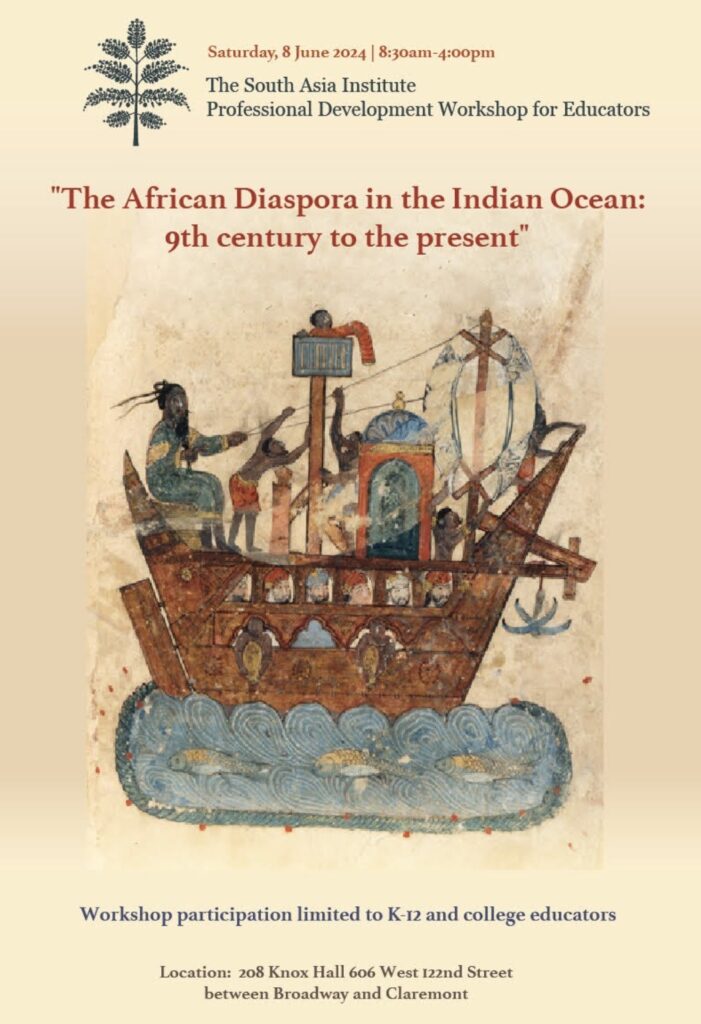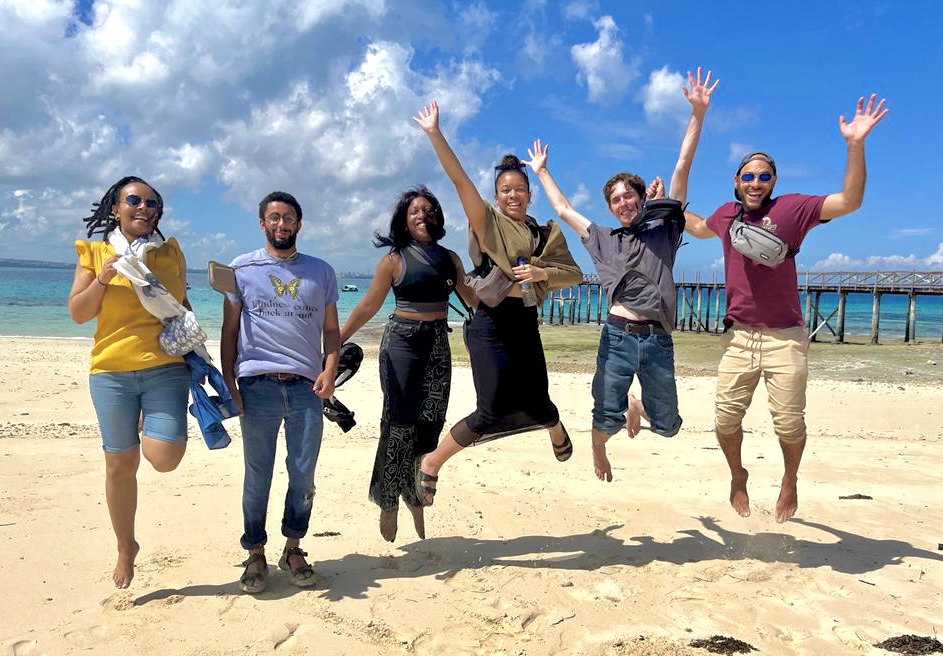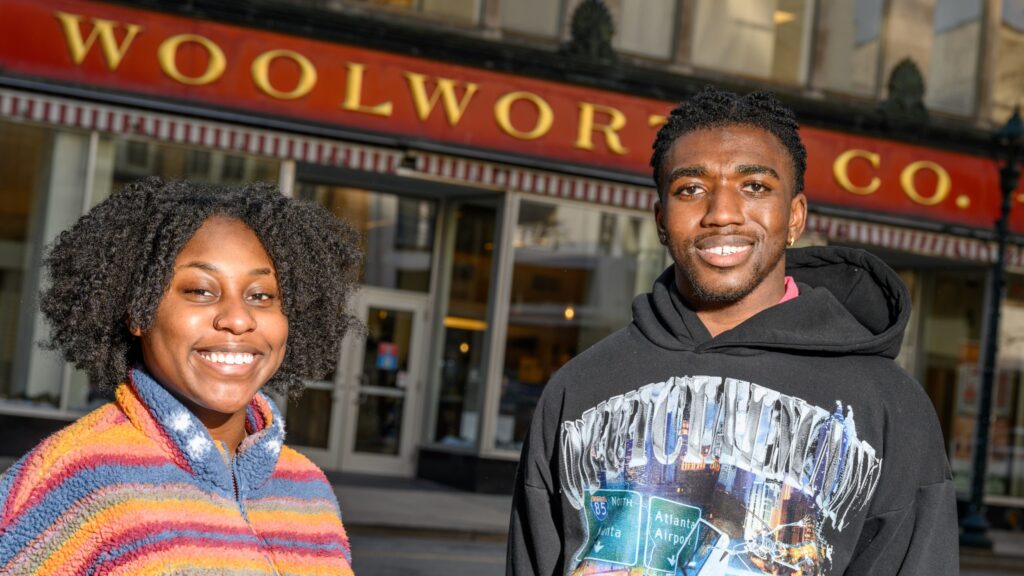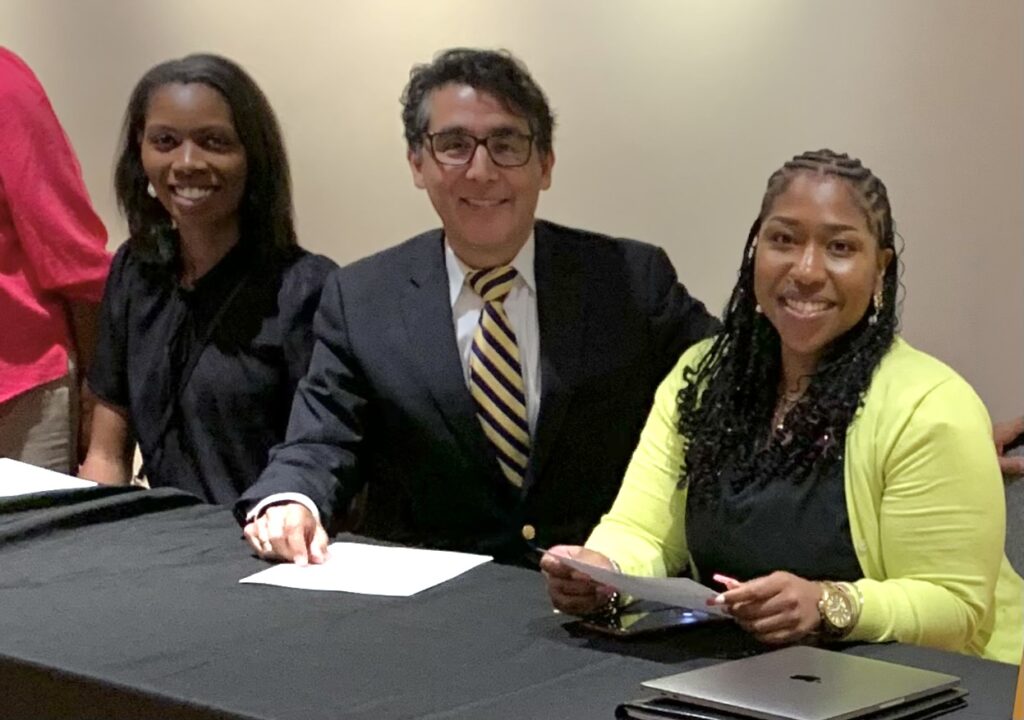On April 22, African American & African Diaspora Studies hosted an event titled “Black Lives Matter” in the School of Education Building’s auditorium. The event was well-attended, with 150-200 audience members. The evening featured two panels, the first titled “Race & Millennials” focusing on the ways millennials define race and understand its history and implications for today. The second panel, “The #BlackLivesMatter Movement: Where Do We Go From Here?” focused on the growing movement addressing racial disparities in violence against black people, and the directions it should take moving forward. The AFS 305: #BlackLivesMatter course, taught by Dr. Tara T. Green, developed the questions for the panels.
The first panel, “Race & Millennials” featured young people of the millennial generation and was moderated by Greensboro News & Record editor, Allen Johnson. Panelists included students the AFS 305: #BlackLivesMatter Class, Maurice Lamberth, Jennifer Carmenate, and Shaylon Duncan. It also included AADS Ambassador, Dominick Hand, and UNCG Alumnus Christopher Peterson, who majored in Political Science. Panelists were asked thought provoking questions like “Define Racism. How do different definitions of racism affect race relations?” and “Can white students be allies in the BlackLivesMatter movement? If so, what is their role?”
The second panel was comprised of students (AADS Majors, Dhruv Pathak and Olufemi Shittu) as well as community members involved in the BlackLivesMatter movement (AADS Adjunct Professor, Activist & Poet, Demetrius Noble; Queer People of Color Collective Leader, April Parker; and Greensboro 4 Justice Founder, Darryl Baskerville). The panel also included UNCG Police Chief Jamie Herring and Elon University School of Law professor, Robert Parrish. This panel answered questions like “What advice do you have for people who are apathetic towards the #BlackLivesMatter movement and forms of racial discrimination in general?” and “What do you feel should be changed about the current judicial system, if anything?” The diversity of participants and their perspectives added to the richness of the discussion.




